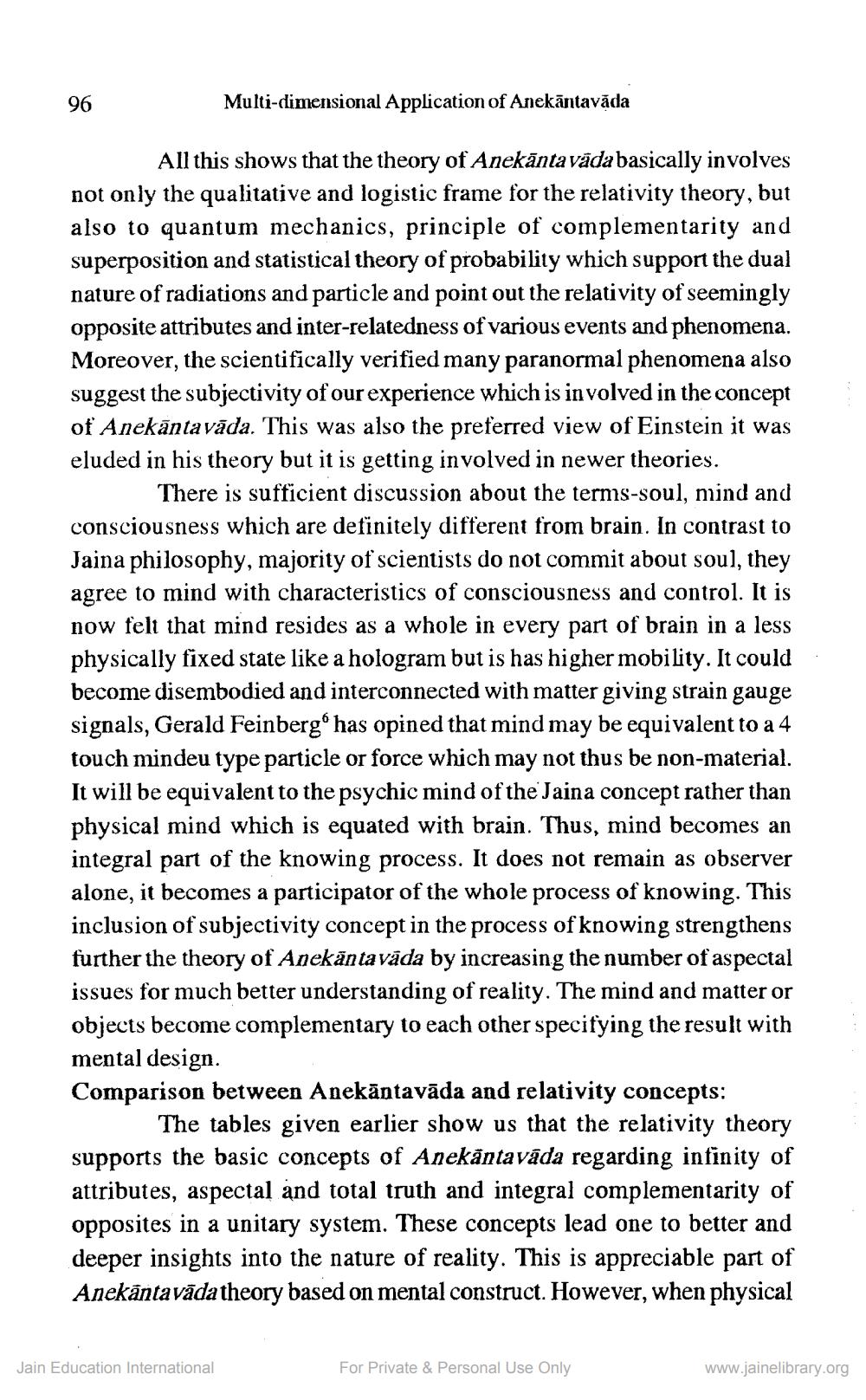________________
96
Multi-dimensional Application of Anekāntavāda
All this shows that the theory of Anekāntavāda basically involves not only the qualitative and logistic frame for the relativity theory, but also to quantum mechanics, principle of complementarity and superposition and statistical theory of probability which support the dual nature of radiations and particle and point out the relativity of seemingly opposite attributes and inter-relatedness of various events and phenomena. Moreover, the scientifically verified many paranormal phenomena also suggest the subjectivity of our experience which is involved in the concept of Anekāntavāda. This was also the preferred view of Einstein it was eluded in his theory but it is getting involved in newer theories.
There is sufficient discussion about the terms-soul, mind and consciousness which are definitely different from brain. In contrast to Jaina philosophy, majority of scientists do not commit about soul, they agree to mind with characteristics of consciousness and control. It is now felt that mind resides as a whole in every part of brain in a less physically fixed state like a hologram but is has higher mobility. It could become disembodied and interconnected with matter giving strain gauge signals, Gerald Feinbergo has opined that mind may be equivalent to a 4 touch mindeu type particle or force which may not thus be non-material. It will be equivalent to the psychic mind of the Jaina concept rather than physical mind which is equated with brain. Thus, mind becomes an integral part of the knowing process. It does not remain as observer alone, it becomes a participator of the whole process of knowing. This inclusion of subjectivity concept in the process of knowing strengthens further the theory of Anekāntavāda by increasing the number of aspectal issues for much better understanding of reality. The mind and matter or objects become complementary to each other specifying the result with mental design. Comparison between Anekāntavāda and relativity concepts:
The tables given earlier show us that the relativity theory supports the basic concepts of Anekantavāda regarding infinity of attributes, aspectal and total truth and integral complementarity of opposites in a unitary system. These concepts lead one to better and deeper insights into the nature of reality. This is appreciable part of Anekāntavāda theory based on mental construct. However, when physical
Jain Education International
For Private & Personal Use Only
www.jainelibrary.org




